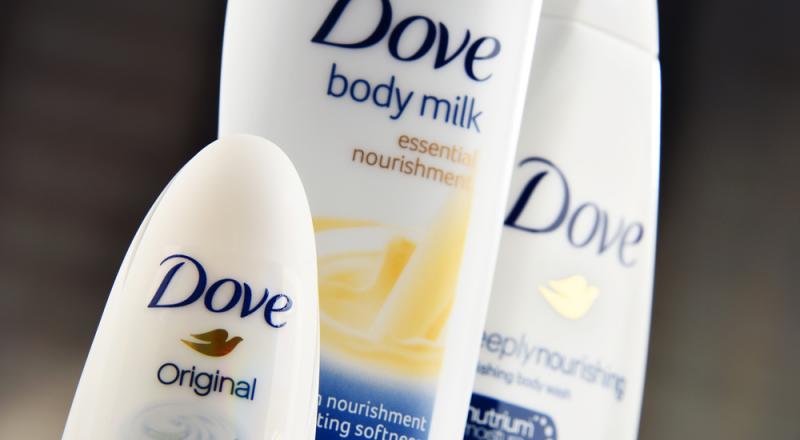Ben Hayman of brand purpose agency Given argues that the consumer goods giant’s ultimatum that it will pull advertising from platforms that publish toxic content plays well with parents, but shows the challenges of delivering 'purpose' in a digital world
Unilever’s recent announcement that it may pull its advertising from digital platforms that "create division", foster hate or fail to protect children was big news. It demonstrated not only the power of big corporations in addressing issues that matter to the public; it also highlighted the complexity of delivering a brand with purpose in a world where technology is changing the rules of marketing, consumers are taking more control, and where the positive agenda of one organisation can conflict directly with that of another.

Today, people expect brands to have a much broader understanding of the impact business can have on the world. And so they should. Businesses can create enormous positive change, both through doing ‘less bad’ and also by doing ‘more good’. The Unilever announcement shows, however, that in terms of what might be scrutinised, the job of the custodians of businesses’ "purpose", or moral compass, is becoming increasingly complex. The issues that consumers can, and should, judge brands on range from the integrity of their supply chain, to their carbon footprint and gender pay gap. For a brand such as Unilever, whose ambition and broader purpose is to change the world for the better, it is more complex than ever to claim and sustain the moral high ground.

Unilever is keen to align advertising strategy with its brand's values. (Credit: monticello/Shutterstock)
Viewed in a different way, this was also potentially a brilliant move from Unilever in terms of aligning advertising strategy with the brand’s values. It was a hugely effective way for Unilever to speak directly to its customers. Much of the portfolio of products that Unilever manages globally can be defined as ‘family brands’. And the issue of safety online really, really matters to families. Across the world, concerned parents are trying to strike the balance between giving their children digital autonomy versus applying stricter controls in a world that they don’t fully understand.
The move enabled Unilever to speak directly to tens of millions of mothers and fathers who want the digital giants to take more responsibility. How often do marketeers get presented with an opportunity like that? For these parents, this will make Unilever more relatable, not only reflecting their concerns but stepping-up and dealing with them.
But what about brands like Google and Facebook? Suddenly they are positioned very much on the wrong side of the argument. Let’s not forget that both are brands that have been built on a strong sense of purpose. Both are organisations that have had the opportunity to play hugely positive roles in society; giving people access to information, a sense of community, accessible communications. Facebook recently announced its new mission to “give people the power to build community and bring the world closer together”.
The issue of motivation is important because it underlies their level of commitment to shaping this issue in the long term
Sounds good, right? However, they are finding that this idea of ‘purpose’ is even more complicated when you are a publisher with very little control of your content. Social media provides a platform to people with different ideals, values and levels of tolerance. This is what makes the challenge from Unilever’s CMO to clean up their “digital supply chains” even more complicated: in increasing controls are Facebook et al challenging the freedoms they champion?
There is of course moral complexity from the Unilever point of view as well. Is Unilever being driven by a genuine desire, at a corporate level, to tackle the complex issues of ‘fake news, racism, sexism, terrorists spreading messages of hate and toxic content’? Or, is it primarily driven by a concern about the risk of having its brands advertised next to content that will harm its corporate and brand reputation? The same drivers have had businesses pull advertising budgets from publications like the Daily Mail – Center Parcs being the most recent this week – citing a clash in values. The issue of motivation here is important because it underlies their level of commitment to shaping this issue in the long term.

They also leave themselves exposed to the argument that this move is equivalent to Tesco refusing to stock Unilever’s products because it takes issue with elements of Unilever’s supply chain. The challenges – and solutions – to both digital and physical supply chain improvements are complicated and can take time to get right.
Ultimatums can be helpful, but they can also create a binary view of the issue. The real challenge will be for businesses like Facebook, Google and Unilever (if these issues really matter to them) to work together to look at the "digital supply chain" – as defined by Unilever’s chief marketing officer Keith Weed – and come up with effective solutions that, while making the digital landscape more sustainable, doesn’t threaten freedom of speech.
Businesses should learn from Unilever. They should align around a clear and motivating purpose, and act on these ideals
As well as being money-making machines, large international businesses can take on issues that render governments ineffective. They are international actors. They understand their customers and what matters to them as well as the complexities of international trade. And now they are getting to grips with the fluid world of communicating through technology platforms which are constantly changing.
All of that said, and acknowledging the complexity of the issue, this move from Unilever is a good thing. The front-page response to the announcement demonstrates the huge amount of power and opportunity businesses have to do good. Unilever is one of the world’s biggest advertisers. It has the ear of the public and the government and could prove to be even more influential in defining ‘the rules’ in increasingly complex and emerging spaces.
Businesses should learn from Unilever. They should align around a clear and motivating purpose, and act on these ideas and ideals with integrity and substance. And if this shows them in a better light, and they benefit from these positive actions, then that’s because they are doing a better job than their competitors.

Ben Hayman is Managing Partner of Given, a brand purpose agency that helps businesses grow by doing good: www.givenlondon.com
Unilever Facebook google purpose digital supply chain marketing CSR sustainability


